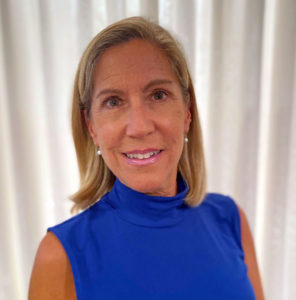 Ed Talk is a biweekly opinion column. The views expressed are solely the author’s.
Ed Talk is a biweekly opinion column. The views expressed are solely the author’s.
While elementary and secondary school students across the country adjust to full-time distance learning, adults have been learning online for years.
Online courses offer adults the flexibility to continue their education while working and taking care of families. Some enroll in these courses to learn new job skills and expand their employment opportunities. Others are lifelong learners who enjoy studying the arts, literature, language, history and a myriad of other subjects offered online.
During the pandemic, these courses can be particularly helpful to adults. According to the Bureau of Labor Statistics, the U.S. unemployment rate in July was 10.2 percent. Acquiring new skills will be critical in helping adults get back to work.
Another consequence of the pandemic is social isolation. While online courses do not provide the same connections as in-person learning, they do offer adults the opportunity to be creative and interact with those with similar interests. Many courses are synchronous, with students logging on at a specified time and participating in a live class.
Other courses are asynchronous, with students listening to pre-recorded lectures at their convenience. This includes Massive Open Online Courses (MOOCs), taken by millions of people across the world.
Class Central is a website that ranks the most popular MOOCs. For 2020, these include courses on data science, leadership, managing supply chain disruptions, cyber intelligence, gender and literature, sustainability, and microeconomics.
Class Central also provides information about the many providers of MOOCs, including Coursera, EdX, Udacity, Future Learn, and Kadenze. Auditing most courses is free, with a fee charged to obtain a certificate of completion.
Because MOOCs have unlimited class sizes and are asynchronous, there is no class discussion or interaction with the instructor during class. And while the flexibility of listening to lectures at your own pace works well for some students, it is a challenge for others to complete these courses due to the lack of structure.
There are many options for smaller online continuing education classes with more personalized learning, but most include a fee. Such classes are available through public school divisions, non-profit organizations, community colleges, and universities.
For example, Arlington Public Schools (APS) has adapted its Arlington Community Learning Program to a fully online format. According to Program Coordinator Raul Matos, the program has the benefit of neighbors learning from and with neighbors. He says that friendships are created in these classes and scholarships are available for those who cannot afford the fees.
APS adult students can complete the Graduate Educational Development program, an alternative to a high school diploma. They can learn a foreign language, enhance their technology and communications skills, improve their English language proficiency, and explore art, cooking, floral design, sewing, and home improvement.
“Expand Your World” is the theme of Encore Learning, another Arlington online continuing education option. This fall, 37 college-level academic courses are offered, including the art and culture of the Renaissance, estate planning, U.S. tax policy, Chekhov’s short stories, and mindfulness. Students pay a one-year $65 membership fee and each class costs $55.
Adults also can obtain undergraduate and graduate degrees online. In 2018, there were nearly 3.3 million students seeking degrees exclusively through distance learning from U.S. post-secondary institutions. U.S. News and World Report ranks the best programs. It also provides cost comparisons for degrees earned online versus on campus.
Online courses allow adults to learn from just about anywhere and at any time. Distance learning can be for fun, to get a better job, or to earn a degree. Do you want to speak Arabic, cook delicious meals, develop websites, become an engineer, or learn just about anything else? There is an online course for you.
Abby Raphael served on the Arlington School Board from 2008-2015, including two terms as Chair. She also led the Washington Area Boards of Education for two years. Currently she co-chairs the Destination 2027 Steering Committee, is a member of the Board of the Arlington YMCA, and works with Project Peace, the Community Progress Network, and Second Chance.

